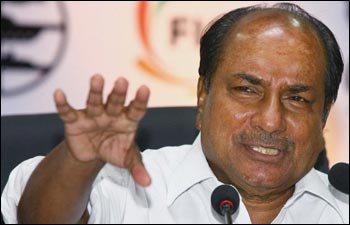 However, the minister said the government was making serious efforts to end the menace and this was illustrated by the implementation of the RTI Act which will "make the walls of secrecy crumble and help in eradicating corruption".
However, the minister said the government was making serious efforts to end the menace and this was illustrated by the implementation of the RTI Act which will "make the walls of secrecy crumble and help in eradicating corruption".
"Corruption is a menace... However, despite our serious efforts, the general perception among people is that the government is not serious about eradicating corruption. However, our government is serious on this issue and this is illustrated by the RTI Act," he said at a Transparency International event here.
"The RTI Act is still in a nascent stage and I am sure that in few years, the walls of secrecy will crumble in all walks of life. No institution can protect their misdeeds by secrecy because of RTI. This will help in eradicating corruption," Antony said.
In recent times, several scams have rocked the UPA government including the 2G spectrum allocation, coalgate, choppergate and the bribery scandal in the railways ministry.
Commenting on the steps taken by the government to check corruption in the defence sector, he said, "Whenever we receive complaints, we do not throw them in the waste bin. Whenever anyone is found guilty, we take serious action after proper inquiry."
"We cannot ignore any complaints; we do not spare anyone who is guilty. Defence is very open and that is why more complaints are coming in. If somebody does any foul thing, it will immediately come out," the defence minister said.
Taking stern action in the corruption allegations involving his ministry, the defence minister had ordered CBI probes in them besides issuing a show cause notice to AgustaWestland Company for cancelling its contract soon after serious charges were made in the VVIP chopper deal.
"We have banned middlemen and agents in defence deals to end corruption. One of the major areas which are most open in defence where nothing is secret," he said.
Antony said defence procurement is always riddled with controversies and the involvement of the Integrity Pact helps in eradicating corruption there.
"Nothing is permanent, even the Integrity Pact. There are vendors who are finding new tactics to get over from the Integrity Pact and we have to further strengthen the pact to see that there are no loopholes," he said.
The minister also stressed on the need for having the institution of Independent External Monitors in procurements to check corruption.
"We must strengthen the institution of Independent External Monitors to check corruption. IEMs should be experts in respective fields and the CVC has an important role to play in it," he said.





Comments
Add new comment